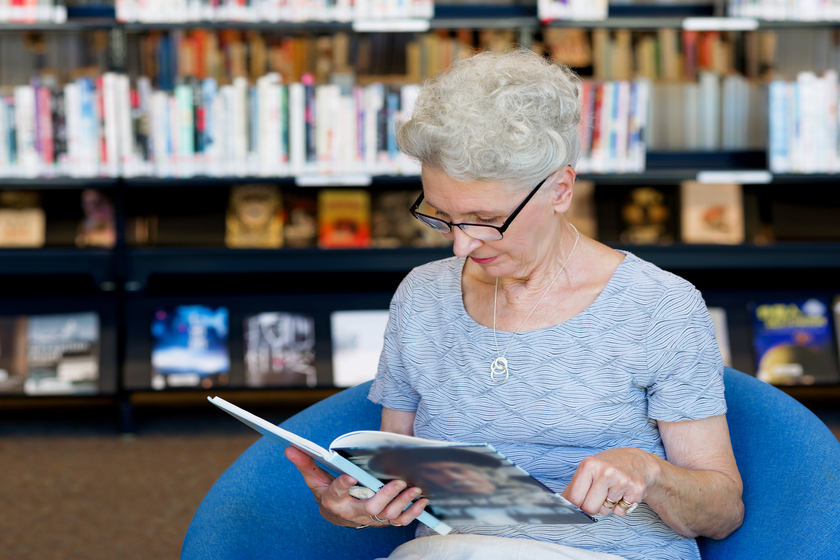As our loved ones age, the worry of dementia looms. Research indicates that engaging in continuous mental stimulation, such as learning, can effectively delay or prevent the onset of dementia. Senior apartments focusing on engaging residents in learning play a crucial role in combating dementia.
These strategies can’t fully prevent dementia, but they can delay its onset and improve the overall quality of life. Constant stimulation is the key. It comes in various forms through a well-curated mix of activities. A senior apartment that aims to keep its residents physically fit, mentally sharp, socially connected, and spiritually fulfilled serves as more than just a place for elderly care. It is also a stronghold in the fight against dementia. Let’s nurture these spaces until this battle is no longer ours to fight.
Continuous Learning
Multiple studies have shown that the brain, just like our other muscles, gains from regular exercise. The more we challenge our minds with learning tasks, the more robust they become. Research suggests that the strength of our brains helps fight diseases like dementia.
Senior apartments can offer a variety of activities, such as book clubs, tutoring sessions, language classes, cooking classes, gardening clubs, technology workshops and more.
Embracing Tech
Many people believe that family members struggle to keep up with technology in their golden years, but that’s not true. As a matter of fact, it’s wrong and underserves our aging adults. Tech tools can facilitate learning significantly, even for aging adults. Senior apartments can empower residents by providing technology tools like smartphones, tablets, or computers for learning.
Aging adults can participate in learning activities with others to promote brain health, prevent dementia, and foster a community of curiosity and growth.
Physical Activities
Studies show that the brain values exercise as much as mental activities. Senior apartments should include regular exercise programs in their schedules because research shows that physical activity benefits the brain as much as mental stimulation. Regular physical activities, such as yoga, stretching, or simply taking a leisurely stroll in the community garden, can help maintain overall fitness and promote healthy brain function, reducing the risk of dementia.
Diet’s Role
Health is not just about staying active; it’s also about eating right. Eating a balanced diet with fruits, vegetables, lean proteins, and grains can also keep the brain healthy. Meals served at senior apartments should be designed to boost brain health. Think of it as a food serving a dual purpose – it doesn’t just satiate hunger but also mentally enriches.
The Healing Power of Music
Music significantly impacts our brain’s health, as shown by many studies. Music can stimulate brain cells and potentially delay dementia symptoms. You can achieve this by either listening to melodic tunes or learning to play an instrument. To tap into the power of music, senior apartments could have regular music sessions or even offer music lessons.
Craftwork
Crafting channels creativity and cognitive engagement. The likes of knitting, painting, and pottery stimulate the brain. These activities require focus, imagination, and skill to keep the mind active and engaged. These can be valuable additions to senior apartments’ activity rosters.
Brain Games to the Rescue
Games that challenge the brain can be a great tool to keep dementia at bay. Try playing games like crossword puzzles, chess, Sudoku, or card games to keep your mind sharp. These activities keep your brain active and constantly learning.
The Power of Storytelling
Stories have been a part of our lives since time immemorial. Storytelling and writing exercises can boost creativity and memory, helping to protect against dementia. Residents sharing personal or fictional stories can fulfill this purpose.
Tapping into Spirituality
Spiritual practices such as meditation, prayer, or group worship help maintain mental balance. A calm and balanced mind is less likely to experience stress and more likely to combat diseases such as dementia. Senior apartments that provide areas for meditation, prayer, or group worship can enhance the mental well-being of their residents.
Nature’s Therapy
Spending time in nature can have a significant impact on mental health. Engaging in activities such as bird watching, gardening, or spending time outdoors can boost residents’ mood, cognitive function, and overall well-being, helping prevent signs of dementia.
Expanding Worldviews
Encouraging golden-age adults to expand their worldviews through discussions on current events, historical insights, or cultural understanding can stimulate cognitive function. Sessions discussing different cultures or debating daily news can help golden-age adults maintain sharp minds, which may prevent dementia.







